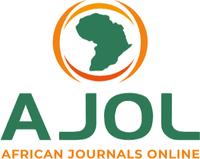ENVIRONMENTAL IMPLICATIONS OF CHARCOAL PRODUCTION IN AKKO LOCAL GOVERNMENT AREA GOMBE STATE, NIGERIA
DOI:
https://doi.org/10.56892/bima.v7i2.423Keywords:
Environment, Production, Charcoal, Fuel wood and AkkoAbstract
The aim of this study was to examine the environmental implication of charcoal production in Akko Local Government area of Gombe State. The specific objectives was to determine the conversion efficiency of the production techniques used in the study and the environmental consequences of charcoal production. Both qualitative and quantitative data were obtained in the study. Purposive sampling technique was used to select 160 respondents from 16 villages sampled. The instruments used for data collection included direct observation method and key informant interview (KII) The results of data analyzed revealed that the mean conversion efficiency 18.8 and the percentage waste was 81.2 respectively. Five tree species are commonly used in the production of charcoal in the study area. It was found that 5.6 kg of wood would be carbonized to produce one kilogram (1kg) of charcoal. Environmental implications of charcoal production included loss of woodland, grazing land, emergence of gullies, loss of soil nutrient, biodiversity depletion among others. Furthermore, charcoal production in the study area was dominated by men, a situation that was traceable to sociocultural factors like religious. Interaction with charcoal producers and transporters indicated that charcoal production which started over a century has been on the increase. Stakeholders (union leader both in producers and sellers, community leaders and forestry workers) in charcoal business expressed worries about decline in the density of trees with the negative environmental consequences. It has been recommended that in order to halt the reckless felling of trees and the attendant environmental degradation, urgent interventions are required from government and non-governmental organizations to find alternative sources of domestic energy.





